My Slow-But-Steady Diet
Disclaimer: I'm not a health professional and, although I've studied medicine and health somewhat on my own time, you should not construe this as being advice that is based on lots of solid research. Please consult your doctor before engaging in ANY diet or trying to determine what daily diet works best for you.
Clarification: I use the word "diet" in this article both in the sense of restricting your food in some way or other to achieve a target weight (i.e. a weight-change diet) as well as in the sense of the range of foods you typically eat (i.e. the normal diet of food you eat each day; your daily diet).
The Challenges We Face
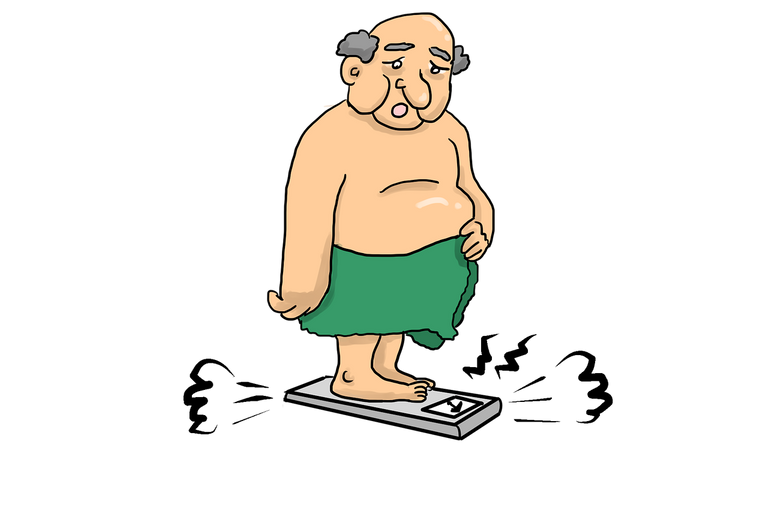
Many people struggle with their weight - I am focusing here on those who are overweight not because they have a predisposition to obesity but because they lack discipline in eating right and getting enough exercise. Some people choose to eat fast food, junk food, sweets, baked goods, too many carbohydrates, lots of meat and legumes, and/or processed foods that are high in calories, salt, sugar, and oil rather than foods that promote good health, such as fish, grains, and vegetables. In short, there are many paths to self-induced obesity. Either by choice or ignorance (upbringing/culture) they eat only what they like and when they want it.

There are also those who don't have access to healthful food due to factors like the lack of it in stores, lack of understanding about which are healthful and which are not, the lack of money to buy healthful food, binge/compulsive eating, comfort foods that they revert to when upset, sad or otherwise stressed, etc. We might call it hedonistic eating but, ultimately, it's a bad habit. We create our habits, and we can change them, too, through self-awareness, a reasonable plan, and discipline.
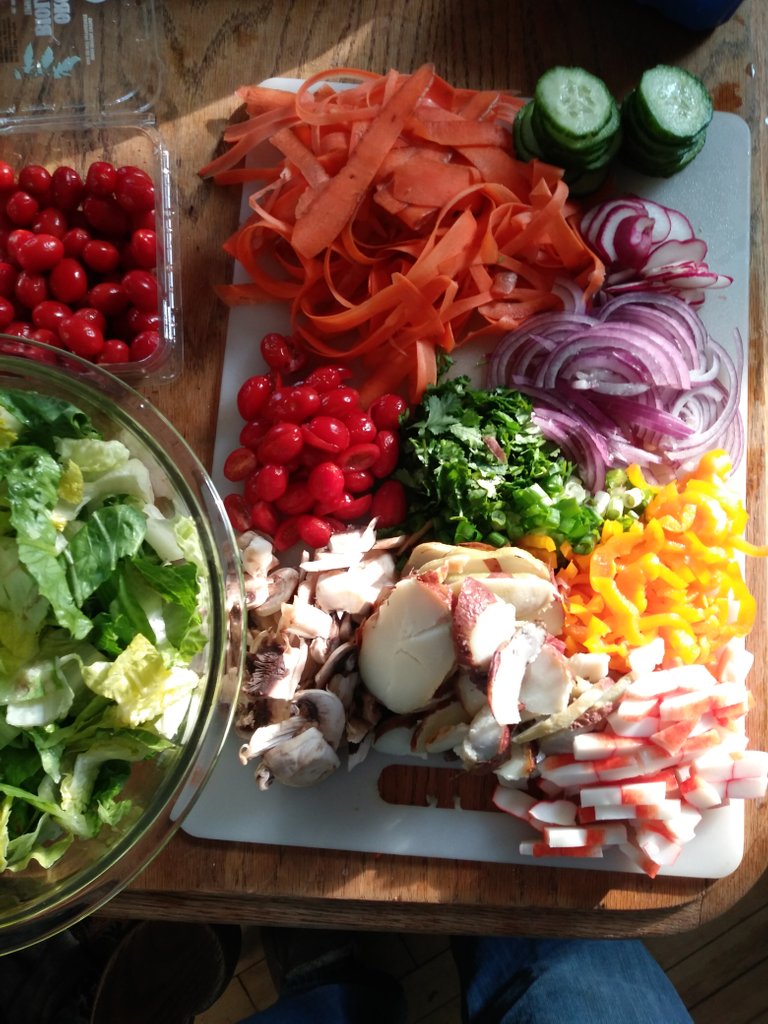
I dislike "you only live once" as a life motto. YOLO is often used as a pathetic attempt to excuse the sort of behavior that carries risk (to self and/or others) with it, and I'm not just talking about adrenalin junkies. YOLO should NEVER be used without caveats and modifying beliefs that promote a healthful lifestyle. The original intent, I think, of YOLO, was to encourage people not to be afraid, but it has broadened into this hedonistic belief that doing pretty much anything is okay because "YOLO". That's just wishful thinking.
The first step you must take in reclaiming control of your body is acknowledging that you don't eat right.

Who It Might Not Work for
There are some people who are genetically predisposed to obesity, malabsorption of nutrients, slow metabolism, etc. and some are even born with syndromes that cause an insatiable appetite, sometimes fatally so. You may be someone who eats the same food day after day to the exclusion of almost everything else, for which I'd suggest you start by watching episodes of "Freaky Eaters".
For all these people, you can read this article and I hope it'll help, but you really need to talk to an expert. I have no idea if my strategy will work for you.

My Story
In 2006, I brought my wife here so she could see what the US is like and why I am the way I am. In the 2 months we were here, I gained 20 pounds. After returning to our home in Indonesia, I lost that weight.
In 2017, after she died (ironically for this article I've just realized - of hypoglycemia, which was a complication of her struggle with cancer), I moved our kids to the US and, within the first few months, I gained 20 pounds. Why? Because I was eating all the yummy-but-bad food I couldn't get/afford in Indonesia, like 70%+ dark chocolate and frozen custard.

I then made a commitment to lose that weight and, by the Autumn of 2019 I was actually below the weight I'd been at on arrival!! Is that an impressive feat? If you look at how many pounds I lost per month, certainly not. But it's COMPLETELY do-able and, as long as I maintain a balance of good food and exercise, I won't gain it back. I'll tell you why below and no this isn't one of those long fake-reveal articles that try to sell you something.
The critical difference from most other diets: people bounce back to a high weight at some point after starting a diet because the diet isn't designed to fight the very things that cause the rebound. I don't. I have kept the same weight throughout most of my adult life (53 years old at the time of writing).
This is not the 2nd time I've done this, either - there have been other times where I started gaining weight and followed some or all of the principles I'll share later to drop the weight. Will this diet work for everyone? I doubt it - nothing works for everyone. As an example of why I say this, anesthetics work just fine on me, but my kids inherited my wife's semi-resistance to it, so they need 2-4 times more than me.
And just to be clear:
- Blood-type dieting is unrelenting nonsense.
- Juicing is not a good choice (perhaps unless you've chosen really well) because although you're getting the nutrients IN THE JUICE, you're also getting all the sugar it has without the nutrients and fiber that are in the pulp you strained out. If you're going to drink juice - drink the whole product, not just the liquid.
- Paleo/high meat diets may work short-term but generally are not good long-term, especially if they're heavy on red meat.
- Many diets take a too-aggressive, too-accelerated and/or too-unbalanced approach to weight loss.
And the list goes on. Most diets ignore human nature, ingrained habits, addictions, compulsions, the impact of gut bacteria, etc.
What Makes Dieting Hard?

- Most people get on diets that are too restrictive/aggressive/accelerated forcing a "mock-starvation reaction" due to the abrupt change and drop in the usual bad things. It's like climbing a mountain with only a few tools.

- Psychologically and biologically, your brain resists abrupt changes unless there is a very powerful motivation (e.g. near-death experiences sometimes induce the willpower needed). Neural pathways build up over time, reinforcing habits in a physical way, and chemical dependencies (such as to caffeine) further reinforce your habits.
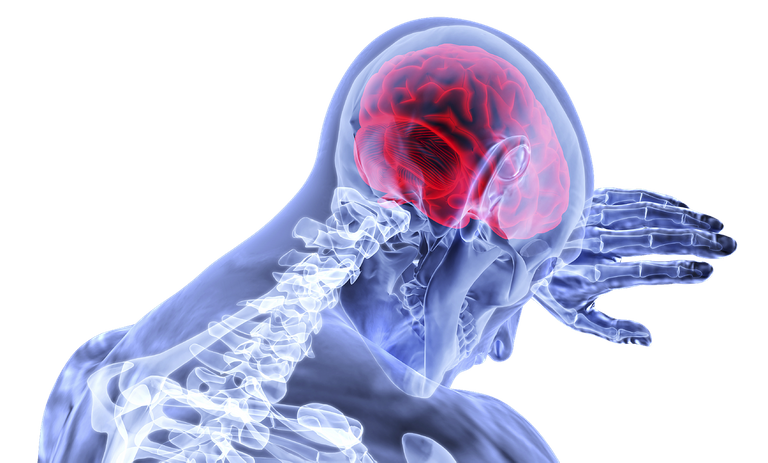
- These diets cause you to struggle with cravings caused by the relationship between the bacteria in your stomach on account of the types that are dominant in your guts BECAUSE of your eating habits, which then create the cravings by sending signals to your brain through the 2nd-largest nervous system in your body (after the brain), which is in your guts. It's a vicious cycle, really - the more you eat of specific types of food, the more of the bacteria that love that particular type of food proliferate in your guts, creating stronger cravings for that type of food and crowding out other types of bacteria that might encourage better eating habits and improve your health by producing things that help your immune and digestive systems. Here's an interesting article on PBS's Nova about how sugar inhibits the presence of good bacteria, Bacteroides thetaiotaomicron aka B. theta, in your gut. (Bacteroides are transiently anaerobic (meaning they can suffer through short exposures to oxygen) and can convert potentially dangerous sugar derivatives into healthful nutrients.)
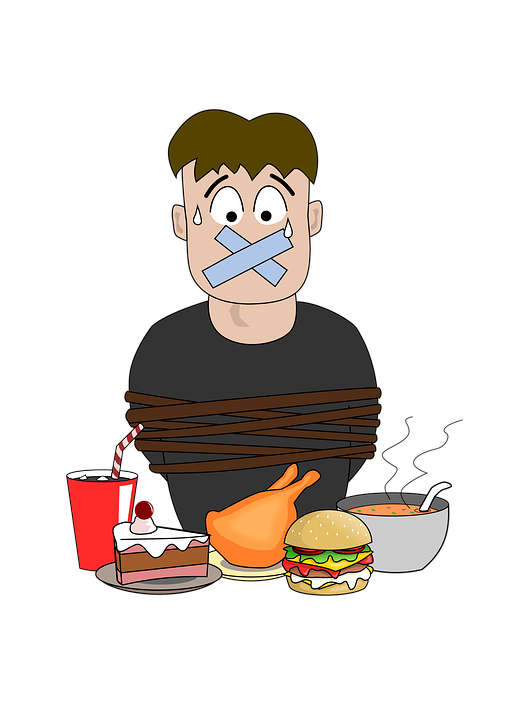
- Lack of exercise.
- Poor nutrition.
- Positive and negative reinforcement of eating habits.
- Incorrect dietary modeling by family, friends, and culture, including comfort foods in times of emotional turmoil.
- Deliberate poor dietary choices due to self-loathing, lack of self-discipline, etc.
- Limited/no access to raw/unprocessed foods at stores.
- Lack of money to buy raw/unprocessed foods.
- Neuroses and psychoses, such as bulimia, body dysphoria, compulsive over-eating, etc.
- Human nature in general, a learned set of behaviors.
Combine these things and you've got a strong chance that they will overwhelm your diet on a regular basis, so you'll experience the yo-yo effect wherein your weight fluctuates and you get frustrated, disappointed, guilty and ultimately prevent yourself from achieving the weight you want. You eat big salads for lunch but you load the salad with a lot of high-calorie salad dressing and, bingo, you're struggling to lose weight. You eat a late-night meal or snack that may be high in calories and then go to bed before it's even been digested, resulting in all the calories being converted to fat. You binge on "comfort food" (which kills you) whenever you're sad, confused, frustrated, depressed or angry, resulting in weight gain. All of these keep you from being successful. It seems an insurmountable task to succeed in losing weight, doesn't it?!

My Simple Dietary Plan
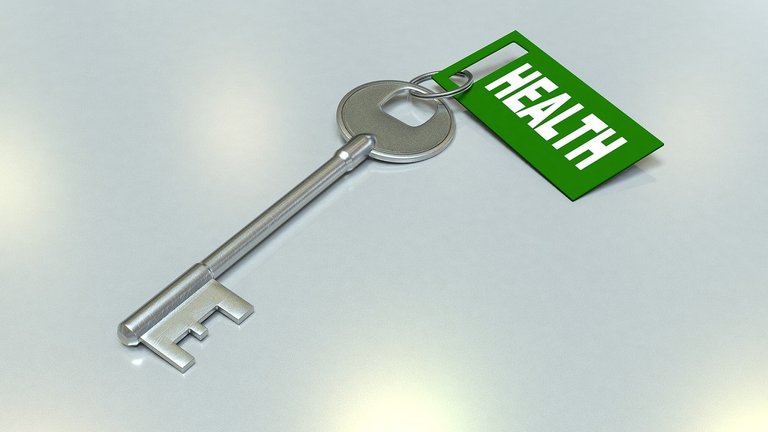
I didn't struggle with my dietary strategy because I followed this simple plan:
- Define the weight you want to reach and also the size of your waist/thighs/hips. You need to recognize that your body type may be different from everyone else, so keep that in mind when determining your target waist/hip size. I had a hanging flab of fat that is now almost gone. I may not have 6-packs but I never have and never will because it doesn't interest me, and we don't all need to look super-fit.
- Do NOT set a weekly goal and don't obsess over all the little details. In fact, go for weeks or months without looking at a scale. I find that regularly looking at a scale can actually create frustration and depression. Weight loss is like the stock market - you're either in it for the long haul, or you're going to screw up.
- Make better choices about what you eat by focusing on things that are good for you, and eating fewer desserts and snacks that are full of calories. Sure, they may please your tongue and sugar cravings, but they don't do much else!
- Eat fewer things that are high in calories (especially simple carbs like sugars, and complex carbs like white rice and potatoes) and eat more things that promote good health (fish, whole grains and vegetables).
- Change your perception of foods that you don't like but which are good for you.
- Snack on things that are good for you in appropriate quantities instead of bingeing.
- Experts recommend 5-6 small meals a day that are different from each other or, alternatively, a large breakfast, a medium lunch and a small dinner (without dessert). Take in the most calories early in the day, in other words.
- Slowly reduce the AMOUNT of food you eat in one sitting and eat more slowly. One strategy is to force yourself to count how many times you chew, another is to force yourself to concentrate on the flavor of your food and eat more slowly so that you enjoy each mouthful for a longer amount of time.
- Slowly decrease the amount you eat.
- Don't eat the most delicious food when you're busy with something else - you'll eat more without realizing it. Only eat delicious food when you're giving it ALL of your attention and, again, ENJOY it SLOWLY.
- Try to avoid eating really delicious food when you're starving because you'll wolf it down.
- Don't go grocery shopping when you're hungry - you'll buy more food that's bad for you!
- When you want to snack on something while you're busy with a task, choose something that isn't tasty and doesn't have many calories (and salt, oil, etc.). That way, even if you eat a lot of it, you're not stuffing yourself with calories and ingredients that are bad for you.
- Engage in physical activities you enjoy. I was surprised to discover that I enjoyed working at Feeding America, which was basically a warehouse job where I was constantly physically active and contributing to a charity that helps people who can't get enough food due to poverty. It was challenging work and some of the volunteers and people placed there by the government or as part of a work-for-help program were very lazy, but I was making a difference while burning fat! I became more muscular and lost some weight. The same thing happened when I worked at an Amazon Fulfillment Center (a euphemistic term for a warehouse), although it was not fulfilling because I wasn't making a difference for society. It doesn't have to be this sort of exercise. I hate going to a gym but I like martial arts. I found ways to exercise that worked well for me and you should, too.

- The mindset of eventual success, potentially after 1 or more setbacks.
- Eat no closer than 2 hours before bedtime (including drinking other than water). This gives most bodies time to move food out of the stomach. If you believe you still have food in your stomach, and especially if you suffer from acid reflux, indigestion, GERD, etc., sleep on your LEFT side to help your stomach empty faster and keep your stomach acid from going back up your esophagus.
The very slow pace of the decrease in consumption volume and calories, change in diet and increased exercise was so gradual that my body, gut microbiota, and brain didn't fight it.

If you appreciate this article, please 🏅upvote/like👍 , 🤩resteem/share
, 🤩resteem/share and share it to Facebook
and share it to Facebook , Twitter
, Twitter , Reddit
, Reddit , LinkedIn
, LinkedIn and wherever else
and wherever else you can!
you can!
Congratulations @reveurgam! You received a personal award!
You can view your badges on your Steem Board and compare to others on the Steem Ranking
Um....Hooray?